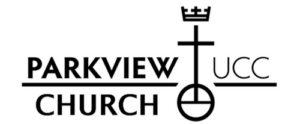
We are affiliated with the United Church of Christ (UCC), a distinct and diverse community of Christians that come together as one Church to join faith and action. With over 5,000 churches and nearly one million members across the United States, UCC serves God in the co-creation of a just and sustainable world. UCC is a Church of firsts, a Church of extravagant welcome, and a Church where “…they may all be one” (John 17:21).
We believe in a God that is still speaking, a God that is all-loving and inclusive. We are a Church that welcomes and accepts everyone as they are, where your mind is nourished as much as your soul. We are a church where Jesus the healer meets Jesus the revolutionary, and where together, we grow a just and peaceful world.

Open and Affirming (ONA) is the United Church of Christ’s (UCC) designation for congregations, campus ministries, and other bodies in the UCC which make a public covenant of welcome into their full life and ministry to persons of all sexual orientations, gender identities, and gender expressions. Parkview is proud to be an ONA church.
Parkview Church Vision Statement
Parkview Church serves as a vital growing force for life, love, hope, peace, justice, and reconciliation. We strive to grow personally and spiritually through our worship, fellowship, and relationships inside and outside the walls of our Church. We are committed to make a difference in our church community and the world.
We the members of Parkview Congregational Church affirm these Eight Points of Progressive Christianity.
Progressive Christians are believers who:
- Have found an approach to God through the life and teachings of Jesus;
- Recognize the faithfulness of other people who have other names for the way to God’s realm, and acknowledge that their ways are true for them, as our ways are true for us;
- Understand the sharing of bread and wine in Jesus’ name to be a representation of an ancient vision of God’s feast for all people;
- Invite all people to participate in our community and worship life without insisting that they become like us in order to be acceptable (including but not limited to):
- Believers and agnostics, conventional Christians and questioning skeptics
- Women and men, those of all sexual orientations and gender identities
- Those of all races and cultures
- Those of all classes and abilities
- Those who hope for a better world and those who have lost hope;
- Know that the way we behave toward one another and toward other people is the fullest expression of what we believe;
- Find more grace in the search for understanding than we do in dogmatic certainty – more value in questioning than in absolutes;
- Form ourselves into communities dedicated to equipping one another for the work we feel called to do: striving for peace and justice among all people, protecting and restoring the integrity of all God’s creation, and bringing hope to those Jesus called the least of his sisters and brothers;
- Recognize that being followers of Jesus is costly, and entails selfless love, conscientious resistance to evil, and renunciation of privilege.
